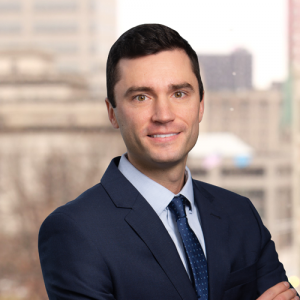In SSM Health Care of Wisconsin, Inc. (“SSM“) v. City of Fitchburg (“City”), the Wisconsin Court of Appeals affirmed a circuit court’s grant of summary judgment that held that some of SSM’s personal property in a sleep center and a renal center is exempt from property taxes under Wis. Stat. § 70.11(4m)(a). Wisconsin Statute § 70.11(4m)(a) provides an exemption from property taxes for property used by a tax-exempt organization to operate a “hospital” and not a “doctor’s office.” Specifically, the exemption applies to:
Real property owned and used and personal property used exclusively for the purposes of any hospital …, which hospital is owned and operated by [an organization] …, no part of the net earnings of which inures to the benefit of any shareholder, member, director or officer, and which hospital is not operated principally for the benefit of or principally as an adjunct of the private practice of a doctor or group of doctors.
In its appeal, the City primarily argued that the sleep center and renal center were doctor’s offices and thereby explicitly excluded from the property tax exemptions under § 70.11 (4m)(a). In analyzing this argument, the court looked to the statutory language, its history and the case law surrounding the exemption. The court ultimately confirmed that the term “‘doctor’s office’ is not a technical phrase that has a peculiar meaning in the law” and that determining whether a property is used as a doctor’s office “turns on the facts of each case.”
Relying on well-established case law, the court considered a number of factors in determining whether an outpatient facility should not be considered a doctor’s office for tax purposes. Some of these factors included:
- Physicians neither own nor lease the facility.
- Physicians do not receive variable compensation related to their services at the facility.
- Physicians do not employ or supervise non-physician staff at the facility.
- Billing statements are issued by the hospital, not the physicians.
- Physicians do not have offices in the facility.
- The facility provides services that were previously provided by a tax-exempt entity.
As it applied these factors to SSM, the court observed that both the renal and sleep center were originally in a tax-exempt facility and continued to provide similar services. The physicians also did not receive variable compensation for the services at their respective facility. Services at both facilities were billed by a tax-exempt hospital and neither center provided offices for the physicians performing services there. Ultimately, the court held that the renal and sleep center were founded as “part of an effort to free up space at [tax-exempt hospital],” and as such, the court upheld the circuit court’s grant of summary judgment in favor of SSM.
This case provides an excellent overview of the appropriate factors for a health system to consider when structuring outpatient services for property tax exemption purposes. Interestingly, while many of the factors used by the court to support tax exemption are requirements under the Medicare provider-based regulations, the decision does not discuss the provider-based status of the facilities. While outside the scope of this article and the opinion, provider-based analyses may provide additional insight into structuring outpatient facilities for property tax exemption purposes.
If you need any additional information, please contact:
- Sara J. MacCarthy at 414-721-0478 or smaccarthy@wp.hallrender.com;
- Laura J. Leitch at 608-770-9496 or lleitch@wp.hallrender.com;
- Joseph R. Krause at 414-721-0906 or jkrause@wp.hallrender.com;
- Richard B. Davis at 414-721-0459 or rdavis@wp.hallrender.com; or
- Your regular Hall Render attorney.
Please visit the Hall Render Blog at http://blogs.hallrender.com/ or click here to sign up to receive Hall Render alerts on topics related to health care law.


